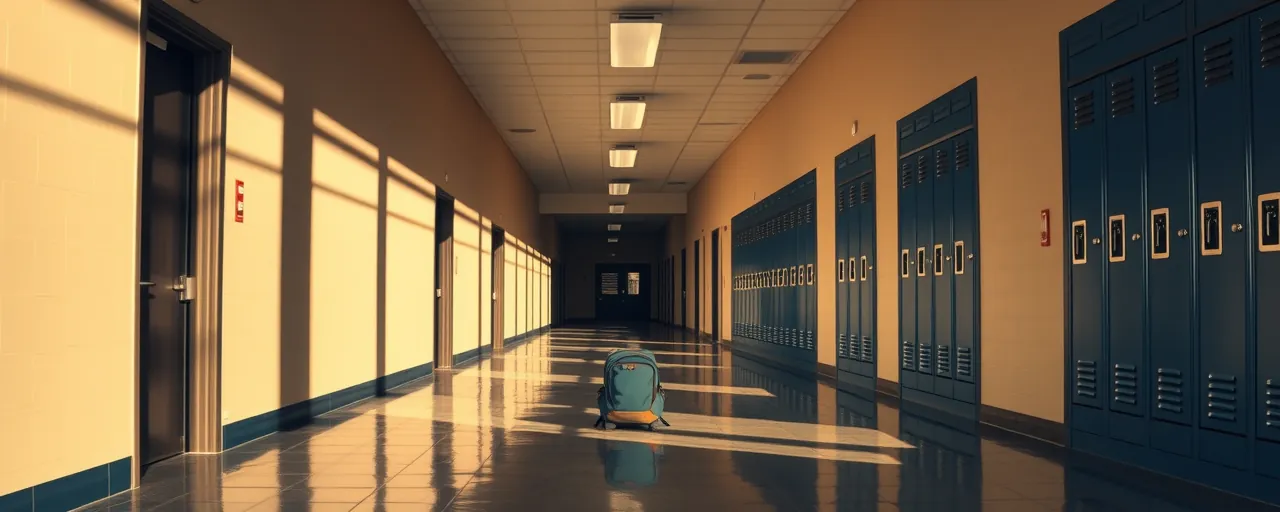A Breach That Shook a Community
In May 2025, Perrysburg, Ohio, faced a startling revelation. Anthony Emmanuel Labrador-Sierra, a 24-year-old Venezuelan man, had enrolled at Perrysburg High School by posing as a 16-year-old. For over a year, he played junior varsity sports, held a driver’s license, and secured Temporary Protected Status using forged documents. His deception, exposed by the mother of his child, rattled the town and sparked fierce debate about immigration and school safety.
Labrador-Sierra’s actions were undeniably wrong. He lied about his age, entered a space meant for teenagers, and broke trust. Yet the Department of Homeland Security’s immediate response—lodging an ICE detainer—raises critical concerns. Are we safeguarding our schools by fast-tracking deportations, or are we punishing entire communities for one person’s mistake?
This case transcends a single incident. It’s about how we treat immigrant students and whether we honor education as a universal right. Labrador-Sierra’s deception is being used to push harsher immigration policies, but the real issue is the desperation driving such choices and the need to protect vulnerable youth.
Our nation stands at a crossroads. We can lean into fear, letting isolated cases shape policy, or we can uphold schools as places of learning, not immigration battlegrounds. The path forward requires compassion, clarity, and a commitment to justice.
Labrador-Sierra’s story doesn’t define the millions of immigrant families seeking better lives. Broadly labeling migrants as risks alienates students we’re meant to nurture. A vision of fairness and opportunity demands we reject fear and embrace inclusion.
The Toll of Overzealous Enforcement
Venezuela’s collapse has displaced over seven million people since the mid-2010s, with nearly a million now in the United States. Fleeing violence and economic ruin, these families rely on schools as lifelines. By 2023, 75% of Venezuelan migrants had arrived after 2010, prompting districts in Florida, Texas, and New York to expand bilingual programs and mental health support to ensure students thrive.
ICE detainers, however, threaten this progress. In early 2025, ICE issued 654 detainers daily, a 72% spike from prior years. Only 28% targeted individuals with criminal records, mostly for minor offenses like traffic violations. Labrador-Sierra’s detainer, issued within 24 hours of his arrest, reflects this overreach. Why prioritize deportation for someone whose main offense was seeking an education, however flawed his approach?
The 1982 Plyler v. Doe Supreme Court ruling affirms every child’s right to public education, regardless of status. This is non-negotiable. Yet, the January 2025 decision to remove schools’ “sensitive locations” status invites ICE into classrooms, spreading fear. Advocates note immigrant families now hesitate to enroll children, dreading deportation over minor missteps.
Some claim detainers enhance safety, citing Labrador-Sierra’s case as evidence of risk. This argument falters under examination. His actions are an exception, not a pattern. While five Ohio districts tightened enrollment checks, no widespread adult infiltration exists. Focusing on enforcement diverts resources from practical safety measures, like training staff to verify age without deterring legitimate students.
Building a Stronger, Fairer System
Protecting schools starts with policies that center students, not punishment. The 2025 “Safe Schools for All” bill, proposed by Democratic lawmakers, aims to bar ICE from campuses, reinforcing schools as sanctuaries. States like California and New York are scaling up legal clinics and “Know Your Rights” trainings, helping families engage with schools confidently. These steps uphold Plyler v. Doe and affirm education as a foundation for opportunity.
Labrador-Sierra’s case underscores the need for robust enrollment protocols, not deportations. Schools can accept diverse documents—birth certificates, medical records, or affidavits—for age verification without requiring citizenship papers. Washington State’s 2025 guidelines provide a blueprint: transparent intake processes, staff training, and equitable practices. Why not adopt this model nationwide instead of relying on ICE?
Escalating enforcement causes more harm than good. Proposals in Tennessee and Texas to collect immigration data or charge tuition for undocumented students violate Plyler and exclude vulnerable youth. Polls show 51% of voters want schools free from immigration actions, with 75% of Democratic voters firmly in support. The public recognizes education as a right, not a privilege to be restricted.
Embracing Justice Over Fear
Labrador-Sierra’s deception demands accountability, but deportation won’t erase the harm or prevent future issues. It only signals to immigrant students that they’re unwelcome. A better approach strengthens enrollment safeguards while ensuring access for all. Schools must remain safe havens where children learn and grow.
A commitment to fairness sees migrants as people with dreams, not dangers. Venezuelan families enrich our communities when given opportunities. Schools are where their children forge futures, not where they face fear. Why let one case overshadow this reality?
As Labrador-Sierra awaits his hearing, the focus belongs on protecting education for all. Policies grounded in compassion and equity will endure beyond fear-based crackdowns. Our schools, and our values, deserve a system that uplifts every student.
